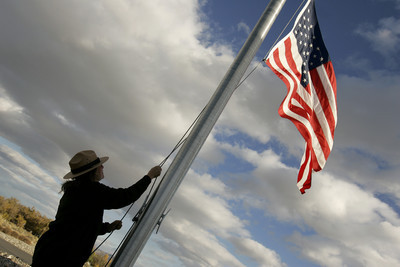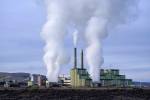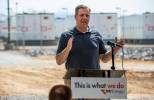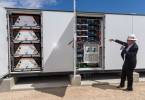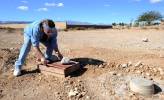GROUP AIRS WARNING
WASHINGTON -- Great Basin National Park was identified by an advocacy group this week as one of 10 parks where air quality is most at risk from plans to build coal-fired power plants.
Three power plants proposed in eastern Nevada, two coal-burning projects in western Utah and a Newmont Corp. mining venture in Eureka County combine to threaten the park in White Pine County, according to the report issued by the National Parks Conservation Association.
"This new pollution will cause hazy skies to be the norm rather than the exception at Great Basin," the group said in the report issued Thursday.
The projects also would increase acid rain pollution at the park, harming fish, plants and wildlife over time, it said.
The report throws more kindling on the debate over the utility plant. Developers of the plants say they are being planned to be as environmentally friendly as possible.
Nevada Power Co. and Sierra Pacific Power Co. have received a draft air permit toward plans for the $3.8 billion Ely Energy Center, which would burn coal to produce 1,500 megawatts of electricity.
Additionally, LS Power Group is developing the 1,600-megawatt, $2.5 billion White Pine Energy Station near Ely. Sithe Global Power wants to build a 750-megawatt, $1.3 billion Toquop plant northwest of Mesquite.
In Utah, coal projects in Sevier County and Millard County also are within the air shed of the Great Basin National Park, the conservation group said in the 33-page report.
The proposed Nevada plants also would have an effect on air quality at Zion National Park in Utah, the National Parks Conservation Association said.
Regarding the Ely Energy Center, Nevada Power spokesman Adam Grant said Friday that technology "will make it one of the cleanest coal plants in the nation."
The call for action by the parks organization was issued amid reports that the Bush administration is preparing to complete new air quality rules this summer that would make it easier to build power plants near national parks.
The new regulations would alter clean air standards for Class 1 areas, where the most protective air quality limits now are in effect.
Pollution levels in those areas are measured in three-hour and 24-hour intervals in order to capture sudden increases that result from peak energy demand. The change would allow pollution levels to be averaged over a year. In that way, sudden spikes in bad air would not violate clean air laws.
While most national parks are designated Class 1 for air quality, Great Basin is not.
Sen. Harry Reid, D-Nev., last fall proposed an amendment in Congress to toughen the park's clean air limits to Class 1, but it was killed by Republicans.
Reid on Friday said the advocates' report on national parks underscores his concerns.
"This new report shows air and water in Great Basin will be compromised greatly if we allow dirty coal plants to be built near our national parks," Reid said in a statement. "Rather than easing these laws, more should be done to toughen air and water standards.
Other national parks highlighted in the report included Badlands in South Dakota, Capitol Reef in Utah, Great Smoky Mountains in Tennessee and North Carolina, Mammoth Cave in Kentucky, Mesa Verde in Colorado, Shenandoah in Virginia, Theodore Roosevelt in North Dakota, and Wind Cave in South Dakota.
The advocacy group said 28 new coal-fired plants are being developed in the air sheds of those parks.
10 NATIONAL PARKS MOST THREATENED BY NEW COAL-FIRED POWER PLANTS • BADLANDS (SOUTH DAKOTA) • CAPITOL REEF (UTAH) • GREAT BASIN (NEVADA) • GREAT SMOKY MOUNTAINS (TENNESSEE AND NORTH CAROLINA) • MAMMOTH CAVE (KENTUCKY) • MESA VERDE (COLORADO) • SHENANDOAH (VIRGINIA) • THEODORE ROOSEVELT (NORTH DAKOTA) • WIND CAVE (SOUTH DAKOTA) • ZION (UTAH)



